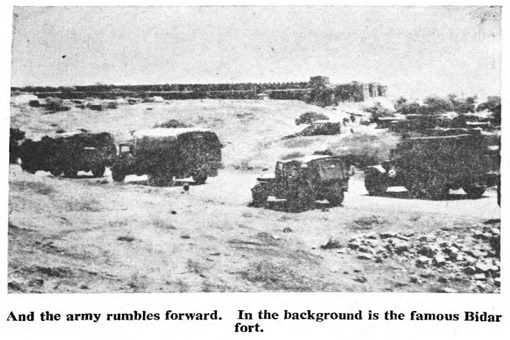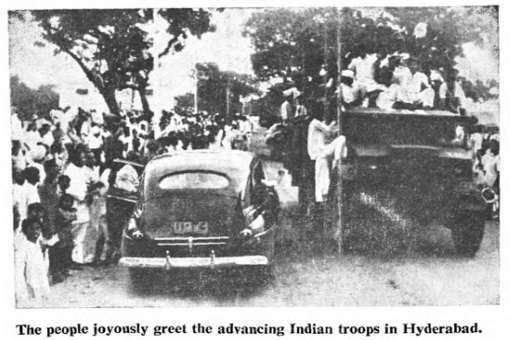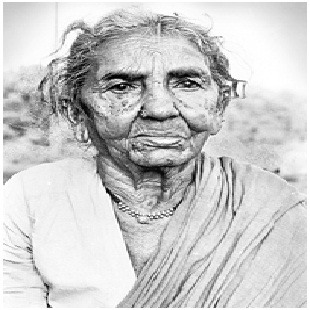Praja Palana Day or Hyderabad Liberation Day:
Why Sep 17 means different things to different political parties
The fact
remains that Indian troops marched into Hyderabad when Nizam VII was
dilly-dallying on the merger
By C R Gowri
Shanker
Published on 17 Sept 2024 7:58 AM
Hyderabad: September 17 means different things to different political parties. And some change their tune when in power and out of government.
The day
marks the ‘liberation/merger’ of Hyderabad State headed by Nizam VII Mir Osman
Ali Khan with the Indian Union under the leadership of the then Union Home
Minister Sardar Vallabhai Patel on September 17, 1948.
Troops from
Maharashtra, Karnataka, and other places marched into Nizam-ruled Hyderabad
state on September 17, 1948, in what was called “Police action” or “Operation
Polo”.
These
misleading titles were used to avoid internationalizing the issue and show to
the world that all princely states joined the Indian Union without much ado!
There are
government of India films and photographs of Indian troops including tanks
marching into Hyderabad and the welcome by people all along the route from
Naldurg, a town in the Osmanabad district of Maharashtra.
Barring
minor skirmishes at the Maharashtra border, the Nizam army did not put up a
fight against the mighty Indian Army and eventually surrendered. However, the
Razakars, a private militia led by Qasim Razvi, played havoc with the lives of
people before they were weeded out.
While many
call it the surrender of Nizam to Indian troops, some of his supporters assert
it as a merger of Hyderabad state with the Indian Union.
The fact
remains that Indian troops marched into Hyderabad when Nizam VII was
dilly-dallying on the merger.
For a long
time, September 17 was historically known as Hyderabad Liberation Day, but
throughout time parties changed their stance and called it by different names
to avoid hurting the sensibilities of minorities and tuned to vote bank
politics.
While the
government of the day in undivided Andhra Pradesh and later Telangana changed
the nomenclature, Karnataka and Maharashtra maintained a steady `Liberation
Day' tag irrespective of the parties in power.
Telangana
Sayudha Poratam
Parallelly, the Communist led insurrection of peasant’s movement against the Nizam State between 1946-1951, weakened Nizam rule.
Popularly known as Telangana armed
struggle, rebellion or Telangana Sayudha Poratam, the movement spread across
Telangana against Nizam’s fascist rule.
Hyderabad State was a feudal monarchy where most of the lands were held by aristocrats known as “Doras”.
Feudal exploitation of peasants in the region was more severe
compared to others of India.
Peasants
movement ignited when V Ramachandra Reddy, a hereditary tax collector, sent a
group of 100 goons and 100 servants to forcibly collect the harvest belonging
to village sangham. When locals resisted, some of them were arrested.
Villagers, including women and children as a mark of protest took out a procession on July 4, 1946 against violence unleased by landlords’ goons.
When they accosted
goons, the goons opened fire killing Doddi Komarayya, the sangham leader.
This ignited largescale protests and violence and spread across the Telangana.
The peasants
looked towards Communist leaders and organised themselves through various
organisations including the Andhra Maha Sabha and started rights movement and
fought against exploitation.
The movement escalated into a rebellion after the administration and the Doras attempted to suppress it.
CPI was backed by the leftwing faction of the Hyderabad State
Congress, many of whom later joined the Socialist Party of India when it was
formed by the Congress Socialist Party (CSP).
Communists formed armed guerilla squads to fight the exploitative landlords and armed battalions of the Nizam called ‘Razakar’, who were increasingly deployed for crushing the movement.
They established parallel governments in about 4000
villages in the region. Gaddar songs against the zamindars and Nizam added to
the glory.
There were scores of unsung heroes and heroines of the Telangana Armed Struggle including Komaram Bheem, ChakkaliIlamma, Swami Ramananda Tirtha, Burgula Ramakrishna Rao, Konda Laxman Bapuji.
Politics
on the historical event
Soon
politics overtook the important event in Indian history and the political
parties, be it Congress, Telugu Desam, BJP, BRS, CPI, AIMIM, etc celebrated the
event with different nomenclatures keeping in view public sensibilities and
political advantage.
Union
Ministry of Home Affairs of the BJP-led NDA government went a step ahead and
issued an official notification announcing the celebration of ‘Hyderabad
Liberation Day’ every year on September 17.
It said the
day will be celebrated to remember the martyrs who liberated Hyderabad.
The reason
is even after India's independence on August 15, 1947, Hyderabad state ruled by
Nizam VII Mir Osman Ali Khan did not merge with the Indian Union. It remained
independent under Nizams for 13 months.
Then Union
Home Minister Sardar Vallabhai Patel, who was overseeing the merger of princely
states, ordered a military action against Hyderabad State. The State was
liberated from Nizam's rule on September 17, 1948, after a police action namely
'Operation Polo'.
BJP-led
NDA Hyderabad Liberation Day
GOI said in
the notification, "Now to remember the martyrs who liberated Hyderabad and
to infuse the flame of patriotism in the minds of youth, the government of
India decided to celebrate the 17th day of September every year as 'Hyderabad
Liberation Day'."
In the
undivided Andhra Pradesh and newly formed Telangana, the government of the day
used different nomenclature to celebrate the event.
Congress
Praja Palana Day
The present
Congress government headed by A Revanth Reddy has announced it will observe the
day as “Telangana Praja Palana Day” or the day of people’s governance.
Karnataka,
Maharashtra celebrate
Karnataka
calls it Kalyana-Karnataka Liberation Day and Hyderabad-Karnataka Liberation
Day, while Maharashtra names it Marathwada Liberation Day or Marathwada Mukti
Sangram Din!
The day is
celebrated in both the states. It is because the part of the region which was
in the old Nizam state merged with the Indian Union on that day.
In undivided
Andhra Pradesh and Telangana, parties in or out of power sing different tunes
on the momentous occasion. Congress, BRS, BJP, Telugu Desam, CPI, etc sing
different tunes keeping in view political advantage and public sensitiveness.
KCR
changes tune
During
Telangana movement days, former Chief Minister K Chandrasekhar Rao demanded
that the then Congress government celebrate the day as Hyderabad Liberation
Day.
However,
after the formation of Telangana and TRS coming to power in 2014, he
backtracked and observed the day as `National Integration Day’.
AIMIM
supremo and Hyderabad MP Asaduddin Owaisi, an ally of TRS turned BRS wrote a
letter to KCR and Union Home Minister Amit Shah urging them to call the day
'National Integration Day' and not 'Hyderabad Liberation Day'.
His argument
was, “The struggles of the people of the erstwhile Hyderabad state against
colonialism, feudalism, and autocracy are a symbol of national integration
rather than merely a case of "liberation" of a piece of land."
Noorani’s
version
In this
book, `The Destruction of Hyderabad’, noted lawyer A G Noorani offers a
revisionist account of the Indian Army’s ‘police action’ against the armed
forces and government of Hyderabad ruled by the fabulously wealthy Nizam.
Noorani
revealed what occurred when Indian forces “liberated” Hyderabad and ensured its
accession to India rather than Pakistan.
Lastly, CPI
contends that the 'Telangana Armed Struggle' spearheaded by the Communists led
to the merger of the Hyderabad state with the Indian Union.
Below:
From Government of India archives:
The state of Hyderabad, as we know it today, was not part of Independent India from the beginning. It had its own royal insignia, armed force, and railway and airline network, among others.
Thereafter, the government of Free India decided to launch an armed attack on the princely state of Hyderabad. This operation was known as ‘Operation Polo’ or ‘Operation Caterpillar’. Fighting took place all along the far-flung borders of the state, tactically independent of one another.
Meanwhile, it was announced that an interim government ‘consisting of representatives of public opinion’ would be installed at the earliest.
India's Home Minister Sardar Vallabhai Patel welcomed by Nizam VII Mir Osman Ali Khan in Hyderabad State.


Source: Hyderabad from 29th August 1948…13.09.48. F. No. 169-GG/47. 1948. President Secretariat. The National Archives of India (NAI).
Hyderabad - Operational Reports. F. No. 169-GG/47. 1948. President Secretariat. The National Archives of India (NAI). and Prasad, S.N. (1972) Armed Forces of the Indian Union. Operation Polo: The Police Action Against Hyderabad, 1948. Historical Section, Ministry of Defence (Delhi: Manager of Publications, Government of India Press).
Dr. Divya Sethi, Ministry of Culture (MoC), New Delhi.
Galvanised the Telangana Rebellion

Ilamma is hailed as a fearless warrior, who mobilised the oppressed people mainly the farmers,

















No comments:
Post a Comment